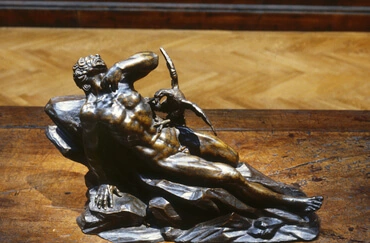Cry

As with most common verbs, the spiritual meaning of “crying” or “crying out” (meaning a shout or wail, not weeping) is highly dependent on context. Who is crying out? To whom? Why? In most cases, though, crying has to do with speaking falsely, and of the emotions arising from the conflict between truth and falsity. When people cry out in distress it is most often an indication that they are being overwhelmed by false ideas. In other cases – especially regarding more joyful cries – it is a celebration of the triumph of truth.
Arcana Coelestia # 1482
1482. That 'Pharaoh's princes saw' means the first and foremost commandments, which are 'pharaoh's princes', is clear from the meaning of 'princes' and of 'Pharaoh'. In the Word, in both its historical and its prophetical parts, princes mean the things that are first and foremost. 'pharaoh' has the same meaning as Egypt, Egypt or Pharaoh being used in the best sense here, since they refer to knowledge comprised of cognitions which the Lord took in first in childhood. That first and foremost commandments from the Word are meant is clear from the meaning of these princes in the internal sense. That in general 'Pharaoh' in the Word has the same meaning as Egypt may be confirmed from many references, even as the kings of other kingdoms who are mentioned by name have the same meaning as the actual names given to their kingdoms. But by 'the princes' are meant their first and foremost features, as in Isaiah,
The princes of Zoan are foolish, the wise counselors of Pharaoh. . . . How do you say to Pharaoh, I am a son of the wise, a son of the kings of old? The princes of Zoan have become fools, the princes of Noph deluded. Isaiah 19:11, 13.
Here 'the princes of Zoan and the wise counselors of Pharaoh' stands for facts that are first and foremost. And since wisdom flourished initially in Egypt, as stated already, it is called 'a son of the wise, and a son of the kings of old'. And there are many other places in the Word where in the same way 'princes' stands for features that are first and foremost.






